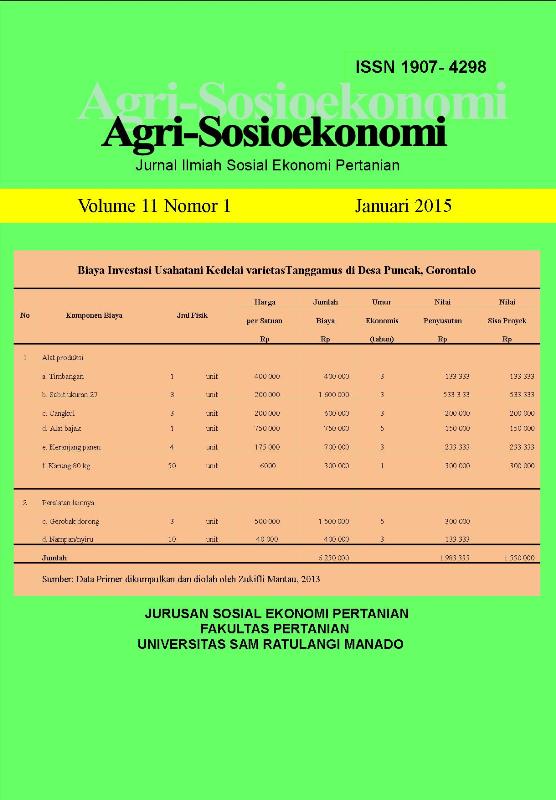STRUKTUR MASYARAKAT DAN KEPEMIMPINAN: KASUS PEDESAAN DI JAWA
DOI:
https://doi.org/10.35791/agrsosek.11.1.2015.7167Abstract
This paper aims to examine the influence of the meeting of two cultures, namely the Eastern culture (Javanese) and the West (Europe mainly Dutch), which each have a different social structure. The Ducth culture has affected on rural community of Java. This study is based on the review of secondary data collected from literature. The problem addressed in this paper is, whether socio-political system of a traditional nature is still alive and give benefit to rural communities when the socio-economic development effort conducting at the present time? Based on the framework and Etzioni Tjondronegoro applied to the structure of community and leadership in Java, it can be concluded that: (1) Nepotism loosened in some places/villages in Java. However, in another village, it still preserved. (2) There is a marginalisation occured to the most vulnerable groups. (3) Sodality can still be found at the village level. (4) Congruent type in rural community in Java, which are still alive in certain villages, is a type of Nepotism-Faithful. Â It can conclude that, the socio-political system of traditional still life in Java and it has a tendency to marginalize the landless communities. For the development community agencies, they needs to consider a vulnerable groups to make sure that benefits of development can distribute equally.Downloads
How to Cite
Manginsela, E. P. (2015). STRUKTUR MASYARAKAT DAN KEPEMIMPINAN: KASUS PEDESAAN DI JAWA. AGRI-SOSIOEKONOMI, 11(1), 18–27. https://doi.org/10.35791/agrsosek.11.1.2015.7167
Issue
Section
Articles
License
The copyright holder is the authorl.Â





